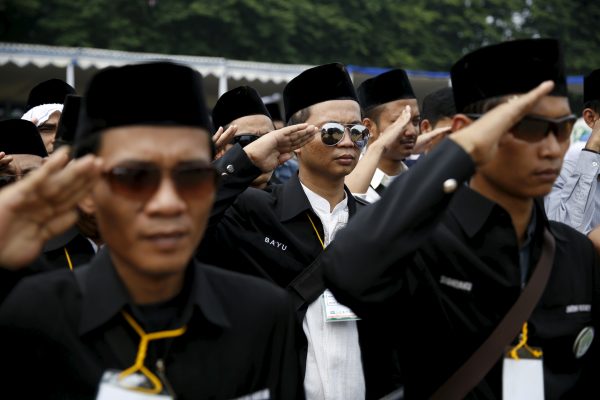Several Western governments continue to fiercely debate whether to accept these returnees. The United States and United Kingdom are adopting a ’hard-line’ approach — both Begum and Muthana were refused re-entry.
But a ‘hard-line’ approach can play into the hands of extremists and fuel further radicalisation among vulnerable Muslims.
In their recruitment propaganda, transnational groups such as IS regularly tout narratives in which Western governments are accused of mistreating their Muslim citizens. Refusing their return or stripping them of their citizenship would stoke these fires.
Even if the decision is to accept their returnees, the question of how to reintegrate and disengage them from extremism is a challenge for many countries. One issue is the difficulty in gauging what IS fighters were exposed to while living in conflict zones such as Syria. Such assessments are critical to determine the extent to which an individual should be prosecuted. They are also crucial to determine their level of security risk and to tailor an appropriate deradicalisation programme.
Anecdotal evidence suggests that returnees can suffer from severe mental trauma that distorts their defence mechanisms. This can severely hinder their ability to function normally in society.
Some also return with families whom they have travelled with, foreign wives or children born in conflict. The varied backgrounds and experiences of returnees mean that a one-size-fits-all approach to rehabilitating and reintegrating them into society may not be effective.
An individualised approach to rehabilitation and reintegration, although resource-intensive, can go a long way in addressing the complexities in resettling foreign terrorist fighters (FTFs), particularly combatants, who may not only retain a strong commitment to IS but also be psychologically affected by their battlefield experiences.
In Southeast Asia, where estimates suggest more than 1000 fighters have travelled to the Middle East to join IS since 2014, both Malaysia and Indonesia are accepting returnees on a conditional basis.
In Malaysia, 102 Malaysians are reported to have joined IS to date. Returnees are subjected to investigations, prosecutions in the more serious cases and have to undergo mandatory rehabilitation. It also has an aftercare programme to reintegrate returnees into their communities.
On 12 March 2019, Malaysian authorities announced a formal request for 13 citizens in Syria to be allowed to return home. Among a previous batch of 11 returnees, eight — all males — were tried in court. The remaining three — one female and two children — had to undergo a mandatory one-month rehabilitation programme as a condition for their return.
Indonesia is estimated to have 600 FTFs and similarly prosecutes returnees, but it also takes a holistic approach with returning FTFs to best prepare them for reintegration into their communities. A range of rehabilitation programmes are run involving the government, civil society groups and the local community. Together, they attempt to comprehensively address the causal factors that contribute to a person being radicalised, including feelings of disenfranchisement, weak family ties, poverty and ideology.
To effectively tackle the issue of returnees, countries need to ensure that they are well equipped to handle the various reintegration challenges. This requires strong political will, adequate resources and the involvement of the wider community. An under-appreciated aspect of the reintegration process involves community engagement.
Community engagement can serve to reinforce or complement official rehabilitation efforts. Community actors such as civil society organisations, the religious community as well as friends and family serve as gatekeepers of social and religious norms underpinning social harmony and peace.
Community-led programmes that attempt to strengthen such norms in returnees and their families, who have been imbued with IS’ warped values and religious misinterpretation, are necessary to overcome misperceptions that rehabilitation is a securitised enterprise by the government. The effectiveness of rehabilitation programmes can be undermined by such misperceptions.
The community also acts as a monitoring mechanism on the ground in ways that the authorities cannot, as they tend to have close personal connections and are most likely to notice behavioural changes in returnees and vulnerable community members. Upstream, early intervention through community rehabilitation programmes can help mitigate the risk of recidivism among returnees.
Effective reintegration requires that returnees be willing to reject extremism and embrace mainstream values of peace and tolerance. Conversely, the community needs to pull together to support and engender a sense of belonging in returnees to mitigate the risk of recidivism. Successful reintegration of returnees is largely premised on their acceptance back into the community.
Sabariah Hussin is a Research Analyst at the International Centre for Political Violence and Terrorism Research (ICPVTR) at the S. Rajaratnam School of International Studies (RSIS), Nanyang Technological University (NTU), Singapore.
An earlier version of this piece appeared here in RSIS.

